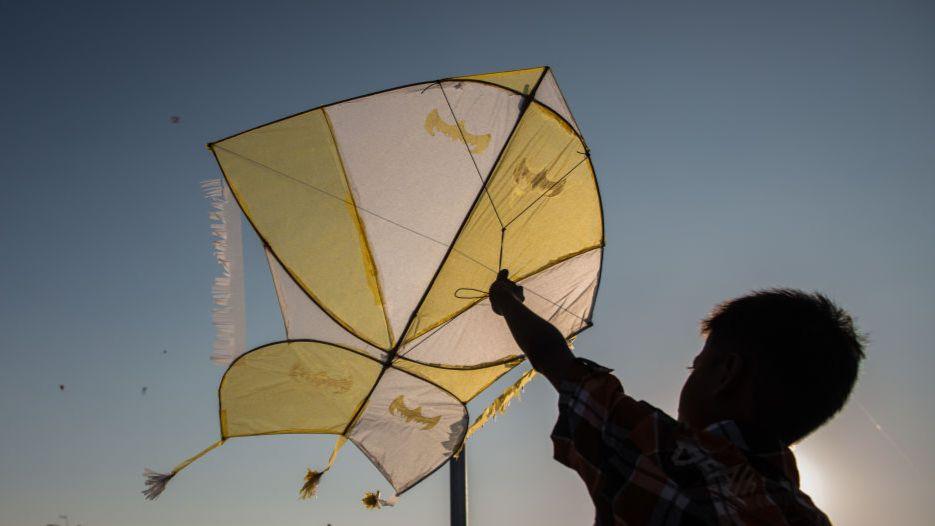Instagram vs reality: Bali is becoming a victim of its own success
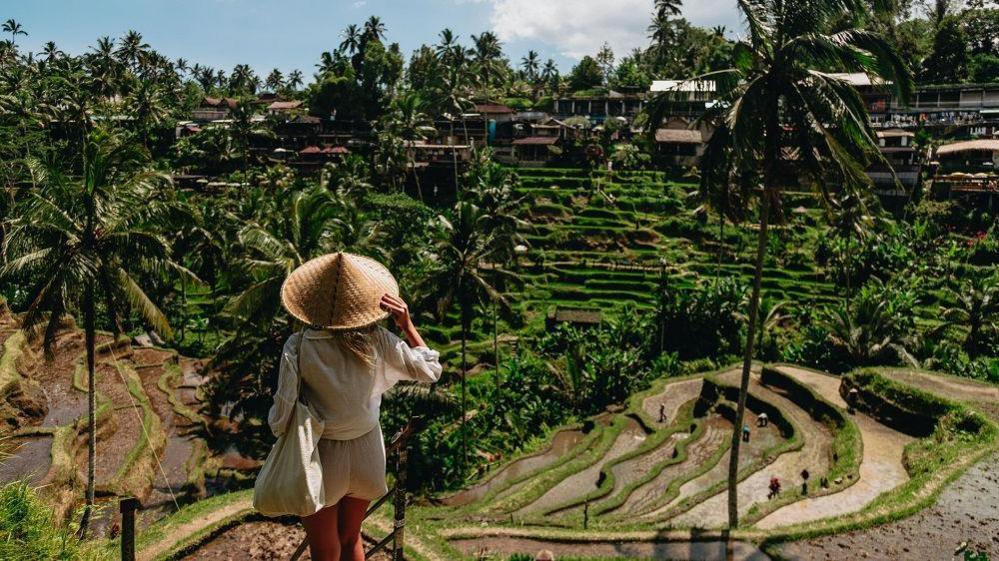
On social media, tourists are complaining about the "expectations vs reality" of Bali - How did we get here?
- Published
Bali, Indonesia's famed tropical paradise, has charmed plenty of tourists over the years.
But it's also leaving a growing number disillusioned - recently among them Zoe Rae.
"Since landing in Bali, something for us has just not felt quite right," she said in a YouTube video in July, filmed in her hotel room.
"We came to Bali with high expectations because we'd seen on social media everyone having such a lovely time."
She added: "If you took a picture of the coffee shop and zoomed out, you would see what the reality was."
Ms Rae did not describe the reality she saw - nor reply to the BBC's questions. But it was unsettling enough to make her book an impromptu flight to Dubai to continue celebrating her wedding anniversary there instead.
One does not need to look far for clues.
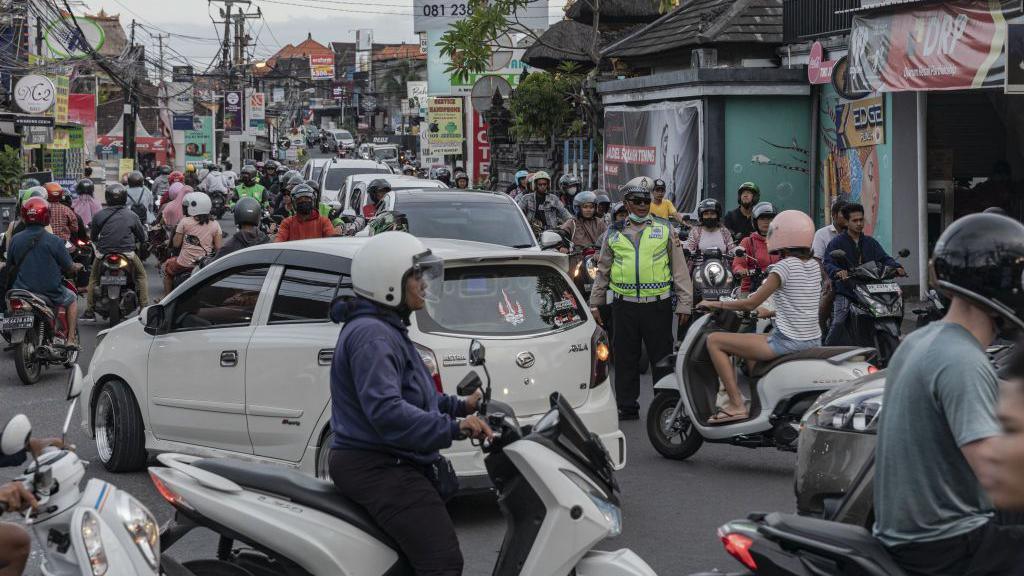
As tourism booms, Bali has become more congested
Social media posts about "expectations vs reality" in Bali abound.
Diners enjoying the sunset at a beach-side restaurant - and the piles of rubbish along the rickety stairs to get there.
The bikini-clad pose in front of a waterfall, while a snaking line of tourists await their turn on slippery rocks.
The alfresco smoothies with bamboo straws, right beside soot-puffing motorcycles stuck on jammed roads.
Millions flock to Bali every year in search of the spiritual Shangri-La promised in the noughties memoir and film Eat, Pray, Love.
What they're greeted by instead are crowds, traffic and the cacophony of construction, which has ramped up alongside a post-pandemic boom in tourism.
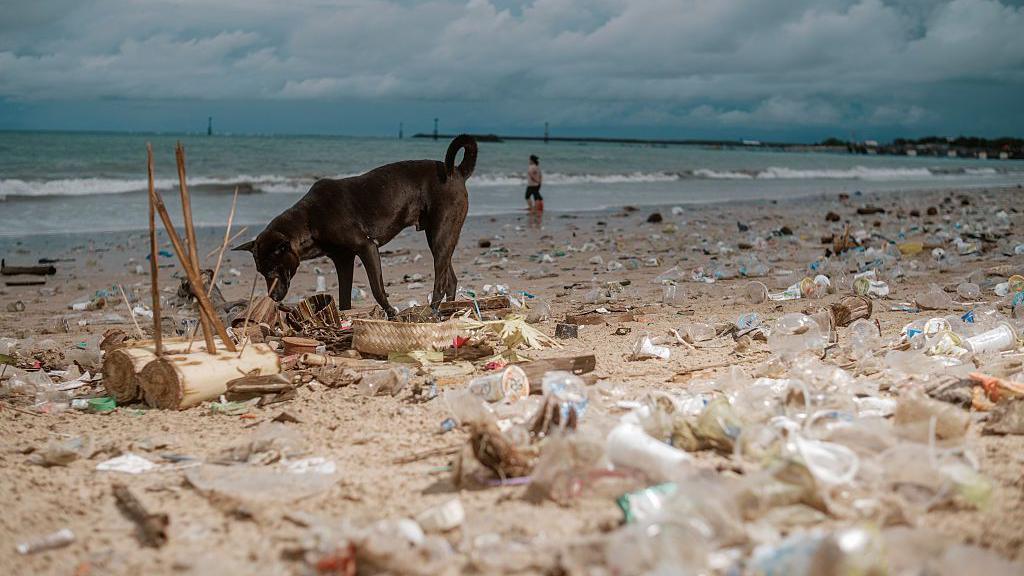
Plastic pollution is a huge problem on some beaches
The growing strain on the island had produced plenty of eye-rolls and grumbles, but this month events took a sombre turn.
More than a dozen people died in rare floods on the island. Poor waste management and unchecked urban development had worsened the situation, officials said.
The local government has since announced it will restrict new construction. But many see such interventions as too little, too late.
How did Bali, celebrated for decades as the "last paradise", get to this point?
#Bali on Instagram
Western adventurers have been turning up in Bali since the early 20th Century, when it was seen as an exotic backwater, home to Hindu temples and rice fields.
Spirituality and a reverence for nature run deep: monkeys, cows and birds carry sacred import, large ancient trees are thought to house spirits, and the popular trekking volcano Mount Batur is believed to be protected by a goddess.
Bali was "one of the first places that there was all this talk of utopia and great beauty and culture," says Gisela Williams, a Berlin-based travel writer who has been visiting the island since the '90s.
"It's the Balinese Hindu culture that has created this myth of the place."
Over the past decade, tourism to the island has skyrocketed, from 3.8 million visitors in 2014 to to 6.3 million last year.
This year looks set to be a record-breaker: the island appears on track to welcome more than seven million foreign tourists.
Rather than unique traditions or idyll, Bali today is better known for its beach clubs and surf houses.
Alcohol is easily available and scanty clothing is more acceptable compared to the rest of Indonesia. And most visitors also want to immerse themselves in Bali's luxe hotels, villas and spas.
"You have a lot of Westerners who are really taking advantage of the affordability of a luxury lifestyle," Ms Williams says. "Since social media has taken over, it's a very superficial way of understanding a place… You just see a picture, and then you go."
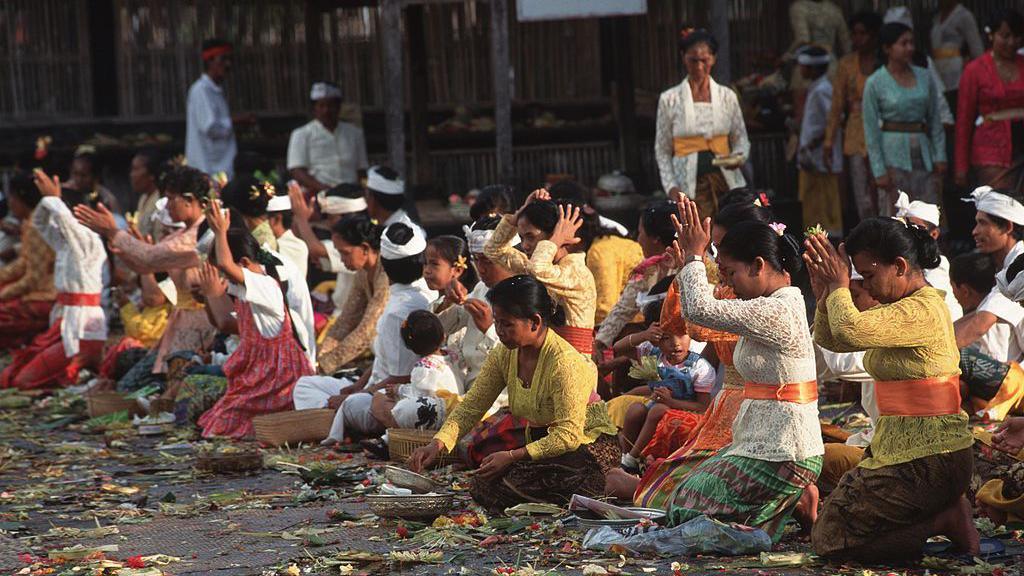
In the 1990s, tourists to Bali were drawn by the island's unique traditions
Zoe Rae's disillusionment with the reality she encountered in Bali exposes the idealised image held by many casual travellers.
Responding to Mr Rae's post, Hollie Marie, a British content creator living in Bali, warned in a TikTok video that "only looking up Bali on Instagram will give you a distorted reality of the island itself".
"The problem with Bali is people come here and only stay in certain areas because they want to see cute cafes, visit Instagrammable places. And they miss out on the fact that Bali is a very culturally rich island," Ms Marie tells the BBC.
Those who live there, or have explored beyond the obvious haunts, will tell you Bali's natural beauty is alive and well, from dolphin-watching and dive explorations, to the lush landscape in the quieter north.
The island is "much, much more" than the "party places" that tourists tend to visit, says Canny Claudya, who moved to Bali from Indonesia's capital, Jakarta.
"If you think that Bali is overcrowded, then you're just not in the right places."
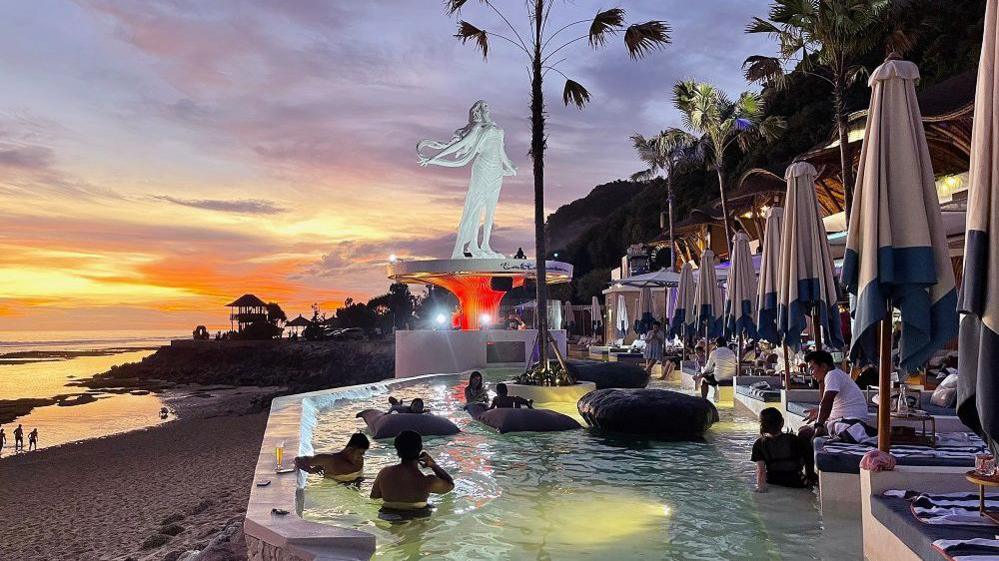
Beach clubs, with their stunning sunset views, are a big pull
'Eroded day by day'
Still, locals say their island has certainly changed under the demands of tourism.
And when they hear of complaints that this is not the paradise travellers signed up for, some point out that such comments are dripping with irony.
"When tourists said they are disappointed with Bali being more crowded, they are also part of the crowd," says I Made Vikannanda, a Balinese researcher who advocates for the protection of the island's nature and people.
"It's like when we're in traffic, we're like 'Why is there so much traffic?' But we're in a car. We're the ones driving the car, we're the ones making the traffic," he said.
Twenty-two-year-old Ni Kadek Sintya recalls a time when she used to ride her scooter through the quiet roads of Canggu, past paddy fields where she would take a lunch break.
Five years on, Canggu has some of the worst traffic on the island. And Ms Sintya's journey to her job in a wellness resort is lined with villas and cafes, and impatient honks follow her all the way.
"I wouldn't bother stopping, let alone rest there," she said. "Now every time I ride past that spot I used to sit [at], there's this feeling of sadness. I feel that Bali is being eroded day by day."
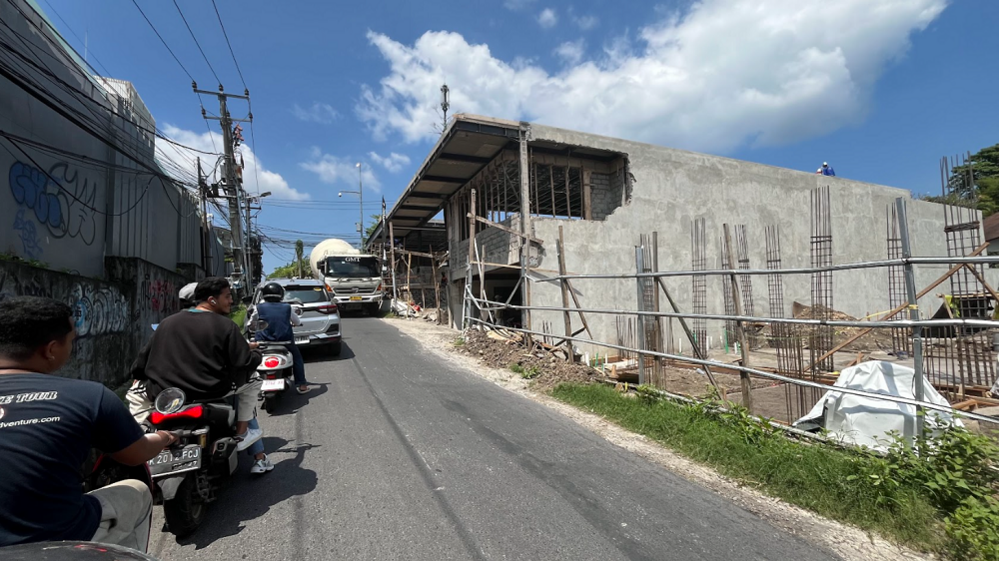
Canggu's narrow roads once cut through paddy fields - now they're lined with construction
As tourism rises, hotels, cafes and bars have been fanning out from the island's congested south.
The latest hipster destination is Canggu, a once sleepy fishing village that has become a magnet for surfers from around the world.
Canggu follows in the footsteps of other neighbourhoods, from Uluwatu to Seminyak, quiet backwaters that have transformed as tourists search for new "hidden gems".
This migration has seen trendy cafes, gyms and co-working spaces pop up along narrow rural roads.
Pererenan, to the north, is now being hailed as a more laid-back Canggu.
Further north, in the forests of Ubud, resorts are marketing themselves as a sanctuary to escape the bustle of the south.
"There's a real catch-22," Ms Marie says. "On one hand, it's always a good thing to encourage people to visit different areas… But I think there's a danger to that as well, because that will encourage people to build everywhere and anywhere."
Plus, she adds, "people treat Bali a bit like a playground".
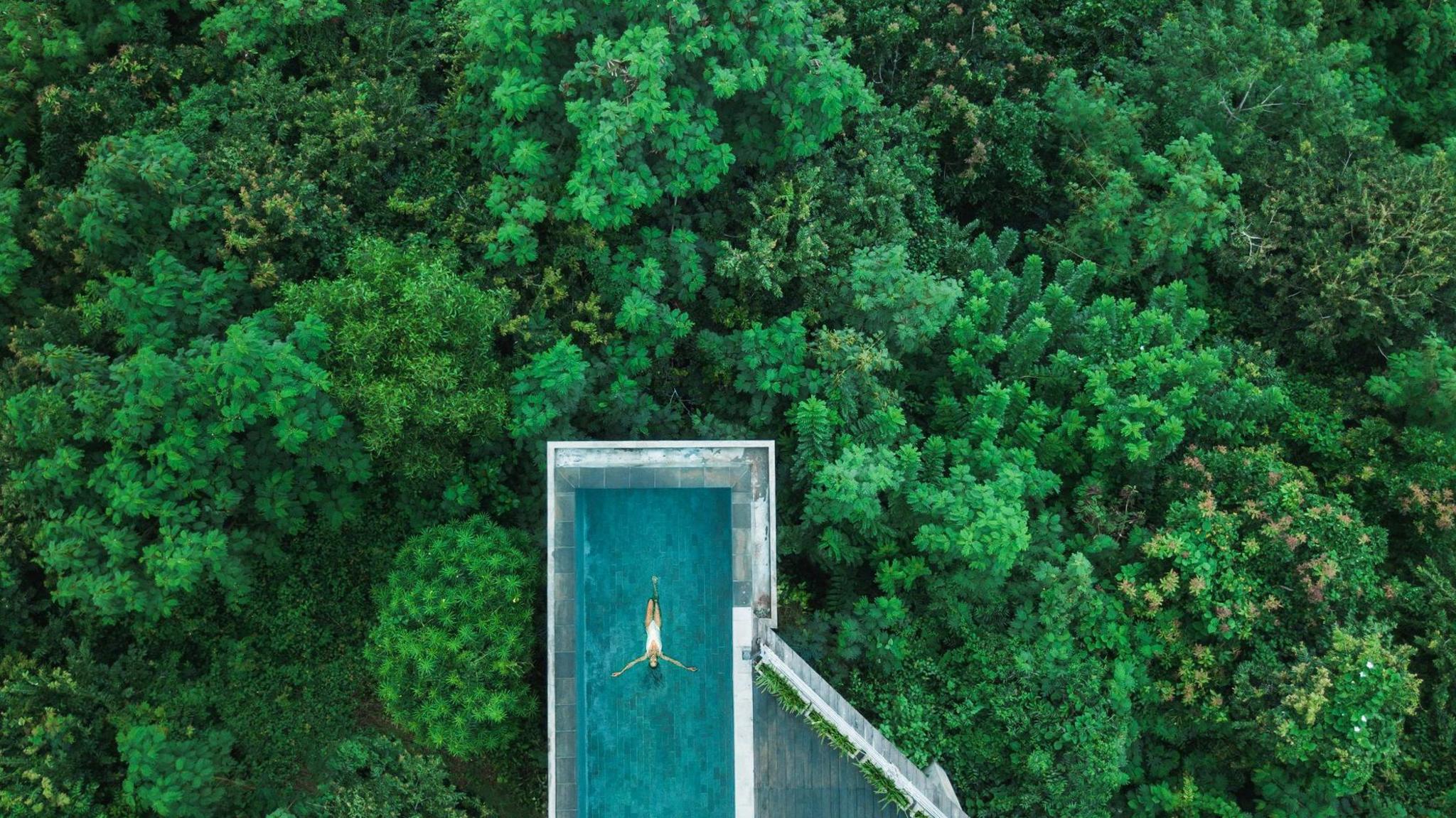
Resorts in Bali's northern jungles sell themselves as an escape from the bustle
Barely a month goes by without misbehaving tourists making headlines: they have been in serious accidents after riding scooters intoxicated or without helmets; foreigners were deported for getting naked at sacred sites; others got in trouble for drunken brawls.
Adding to recent tensions are thousands of Russians and Ukrainians who have been settling down in Bali after fleeing the war.
The head of Indonesia's National Narcotics Agency recently warned of a growing problem, external with Russians and Ukrainians engaging in criminal activities in Bali.
Cleaning up
Local resentment is rising, with social media vigilantes putting misbehaving tourists on blast - even as the Balinese maintain their world-famous hospitality.
"A lot of tourists think because they're the ones with money to spend on our island, we locals should be OK with whatever they do," says Ms Sintya, who like many of her generation have come to rely on the stability of a career in tourism.
"It can feel like I'm being trapped," she says, "because we live on tourism. So if we stop tourism, what will we survive on?"
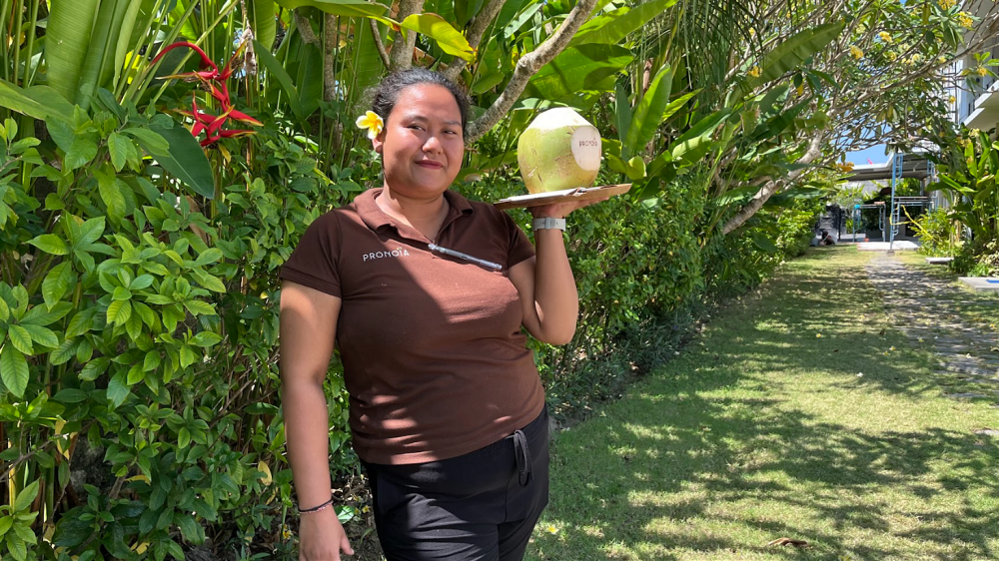
Like many, Ni Kadek Sintya depends on tourism for her livelihood
Despite the "uncontrolled growth" of tourism, Mr Vikannanda, the researcher, thinks the "development of Bali and the harmony of nature can still be maintained".
"I'm still optimistic. Especially with the participation of young people."
Indeed, businesses and activists have launched ground-up efforts to encourage sustainable development, from waste management education to beach clean-ups.
Authorities, who have been criticised for not regulating tourism enough, are also trying to clean up the island.
Earlier this year, Bali banned single-use plastics and issued behaviour guidelines for visitors to "ensure that Bali's tourism remains respectful, sustainable, and in harmony with our local values".
Police have been deployed to popular areas to make sure visitors follow rules.
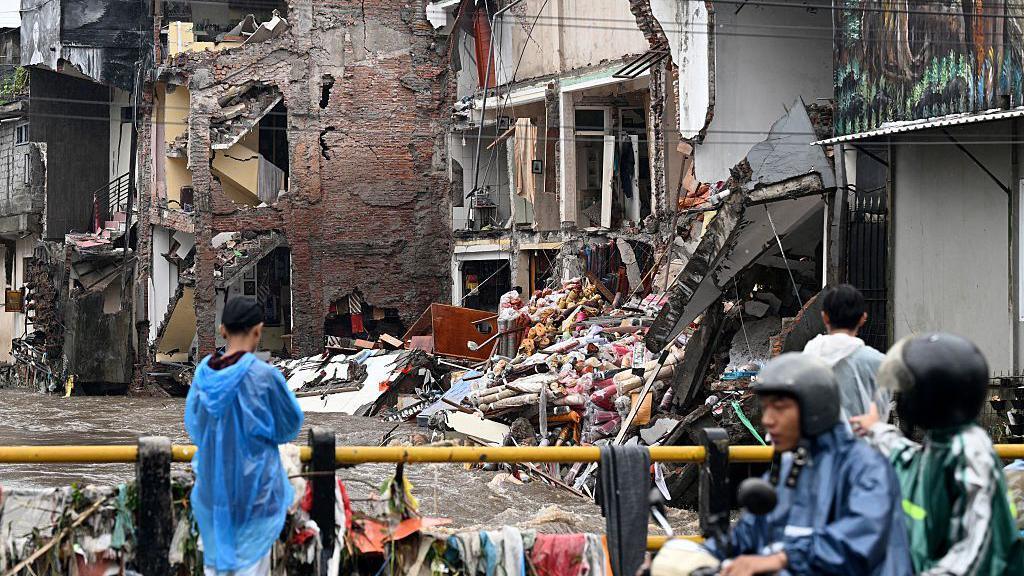
Bali's worst floods in a decade spotlighted the island's waste management problem
"The Indonesian government has come to understand that Bali is also a natural asset, it's not just a tourist market to be exploited," Maria Shollenbarger, travel editor at the Financial Times' HTSI magazine, tells the BBC.
"Bali is a crucible in a lot of ways of overtourism," she says.
"But no matter where you're going in the world, I think it's important for people to remember that it's incumbent on you, the traveller, to engage responsibly with the destination."
- Published15 June

- Published1 September
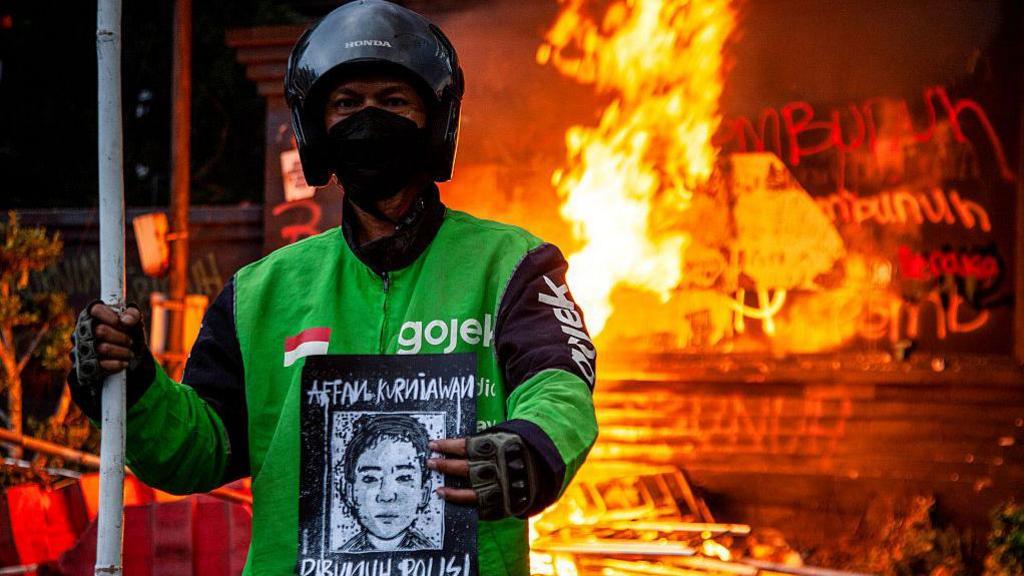
- Published16 June
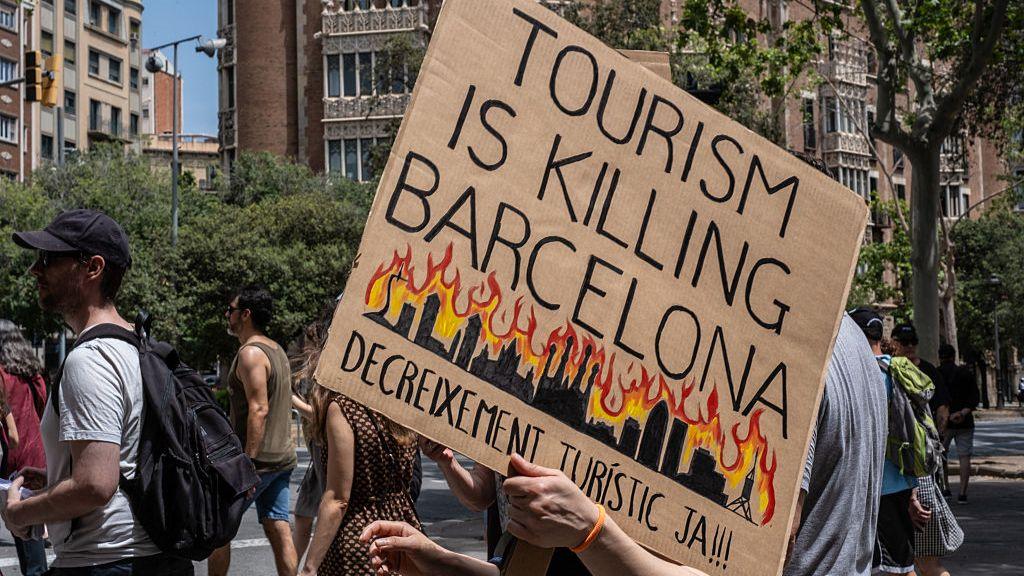
- Published1 August
